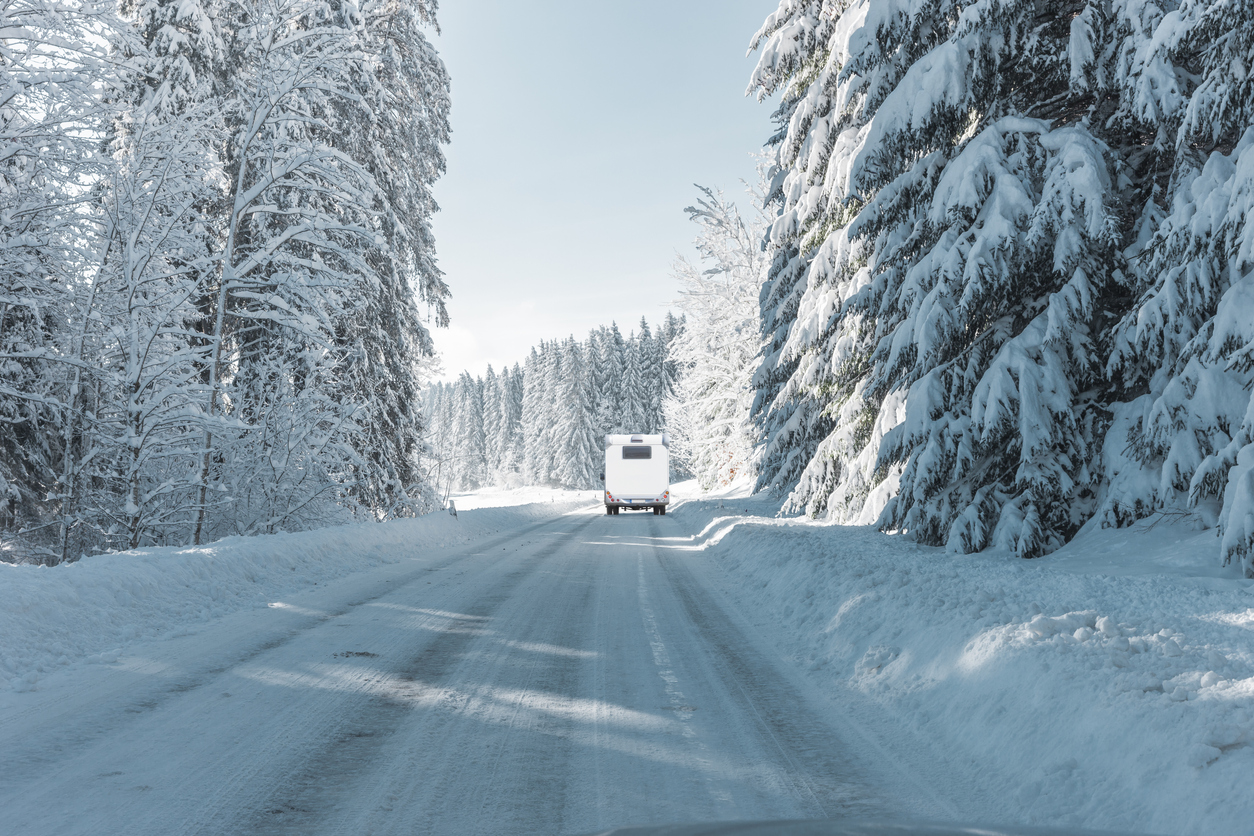
It is essential to know the best methods to safely drive your RV during the winter to avoid catastrophes. Recreational vehicles offer a fun and convenient way to travel throughout the country. Like any other vehicle, though, they can be vulnerable to subpar road conditions in the winter. If you are interested in ensuring your RV is equipped for winter driving, review your
RV insurance coverage and confirm that it is up-to-date.
Safely Drive Your RV During the Winter With These Tips
You can also utilize winter RV driving tips such as the following four that will minimize your risk on the road.
Invest in RV Insurance and Keep the Right Supplies on Hand
According to statistics, RVs are
about one-third as likely as other vehicles to be involved in a fatal accident. The size and construction of an RV often insulate passengers from injury, but that doesn’t mean that you should dismiss the risks — and in the winter, accidents aren’t the only risk you face. Driving in the wintertime can also put you at risk of getting stranded. You must invest in the right RV insurance and keep survival supplies on hand.
Make Sure You Have the Right Chains and Tires
A few factors can significantly increase your liability in winter road conditions. Your tires are one of these factors. If the tread on your RV’s tires is too worn, your risk of losing traction increases significantly. It is particularly treacherous when you face the possibility of snow, rain, or even ice. Be sure that your tires still have sufficient tread, and invest in tire chains in case you encounter conditions that require additional safety measures.
Check Your Battery’s Condition Before Driving
Many people don’t realize that their battery is more likely to fail in winter weather. It is true because the electrochemical reaction that a battery relies on slows down and weakens its function. Getting stranded in cold weather is not fun, so you must inspect your battery’s condition before you hit the road. You can do this by using a voltmeter and measuring the voltage output. A battery that is in satisfactory condition will typically provide a reading that is from 12.4 to 12.7 volts.
Find the Right RV Insurance
No matter how much you prepare for winter weather, there is always risk involved in an RV trip — or any driving, for that matter. You need RV insurance to cover these liabilities and ensure you are not vulnerable to damages if an accident occurs. Look for a policy that includes property damage and bodily injury so that the policy covers every aspect of liability. With the right insurance, you can drive your RV wherever the road takes you — no matter what season it may be.
About Provident Protection Plus
For more than 65 years,
Provident Protection Plus has served the businesses and residents across several states nationwide. Today, we are a wholly-owned subsidiary of Provident Bank, the region’s premier banking institution. To learn more about our coverage options,
contact our specialists today at (888) 990-0526.
 It is essential to know the best methods to safely drive your RV during the winter to avoid catastrophes. Recreational vehicles offer a fun and convenient way to travel throughout the country. Like any other vehicle, though, they can be vulnerable to subpar road conditions in the winter. If you are interested in ensuring your RV is equipped for winter driving, review your RV insurance coverage and confirm that it is up-to-date.
It is essential to know the best methods to safely drive your RV during the winter to avoid catastrophes. Recreational vehicles offer a fun and convenient way to travel throughout the country. Like any other vehicle, though, they can be vulnerable to subpar road conditions in the winter. If you are interested in ensuring your RV is equipped for winter driving, review your RV insurance coverage and confirm that it is up-to-date.
 It is essential to know the best methods to safely drive your RV during the winter to avoid catastrophes. Recreational vehicles offer a fun and convenient way to travel throughout the country. Like any other vehicle, though, they can be vulnerable to subpar road conditions in the winter. If you are interested in ensuring your RV is equipped for winter driving, review your RV insurance coverage and confirm that it is up-to-date.
It is essential to know the best methods to safely drive your RV during the winter to avoid catastrophes. Recreational vehicles offer a fun and convenient way to travel throughout the country. Like any other vehicle, though, they can be vulnerable to subpar road conditions in the winter. If you are interested in ensuring your RV is equipped for winter driving, review your RV insurance coverage and confirm that it is up-to-date.



